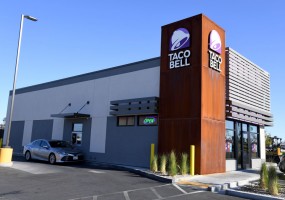The way we eat has profoundly changed over the centuries. We have moved from an agriculture-based way of everyday eating onto increasingly adding meat to our meal options, up until the fast food paradigm shift exploded and pre-prepared food on the go became a norm. All these changes have been fueled or facilitated by technological advancements, as the food industry itself has undergone some radical changes both in its ability to produce food and in its focus. With a digital revolution underway for years now, could we be witnessing another transformative evolution of the way we eat as we know it?
Grocery Shopping and Cooking Online
Convenience seems to still be the name of the game, but reinvented. The focus is not on fast food prepared on the spot by someone else, but on getting food and ingredients picked up and delivered to your door by a service provider. A recent report by the Food Marketing Institute estimates that the market share of online grocery sales will rise to 20% by 2025, which translates to $100 billion in yearly sales. In terms of store volume, that figure is the equivalent of a whopping 3,900 grocery stores. This will mark a stark departure from today's landscape. At the moment, e-commerce revenue in the US accounts for 1.5% of all FMCG sales. South Korea leads the pack at an impressive 19.7%, followed by the UK and Japan at 7.5%.
You will find more infographics at Statista
Meanwhile, apps like Innit aim to provide an integrated cooking experience by combining recipe libraries with cooking demo videos, providing meal suggestions tailored to allergies and diet preferences, along with real-time cooking guidance. Similar integrated apps, which can be connected to smart devices, could be the future of cooking and how we approach the way we form our everyday eating habits. As with all things new, this online revolution of preparing meals and cooking comes with risks that are familiar from other aspects of our lives that have become digital, so companies investing in novel services and online applications are being mindful of security concerns. Tools like a web application firewall protect online apps like Innit from most online threats, including OWASP Top 10 and zero-day threats - protection which these apps need to get PCI DSS certified. For online retailers like WholeFoods that store and process the financial information of millions of shoppers to process purchases, cybersecurity needs to become a top concern.
The Meal Kit Movement
In recent years, a trend of "returning to the roots" seems to be ongoing. Consumers are becoming increasingly aware of the (low) quality of pre-processed food available, organics and local producers are being sought after, and more and more people are questioning the meat industry's standards and turning to veganism or at least choosing a meatless lifestyle. Could this be a signal of a new generation of consumers that are rediscovering the approach of home-cooked meals with fresh and local ingredients - at least for those who can afford it? This might be the secret behind the secret of meal kit delivery services, that have exploded to a $5 billion industry.
Consumers are looking for fresh ingredients but do not want to lose on convenience - so the concept of simply choosing a recipe and having the ingredients being picked out for you and brought to your door is alluring. Even the names of the top 5 companies in the business suggest a connection to home cooking and fresh, wholesome food: The sector is led by Blue Apron with a 17% market share, with Freshology, Hello Fresh, Green Chef, and Home Bistro following closely. Research from the same source shows that 75% of adult Americans have heard of these services and roughly 25% have had a trial run and 90% of consumers who use the services would recommend them to a friend. When it comes to loyalty, 97% of consumers are still with the provider they originally signed up for.
Whatever the future may hold for our eating habits, the digital revolution is here to stay - and it is certain that it will have a deep impact on our diet. We just have to make sure that the change is for the healthier and tastier.
* This is a contributed article and this content does not necessarily represent the views of foodworldnews.com









